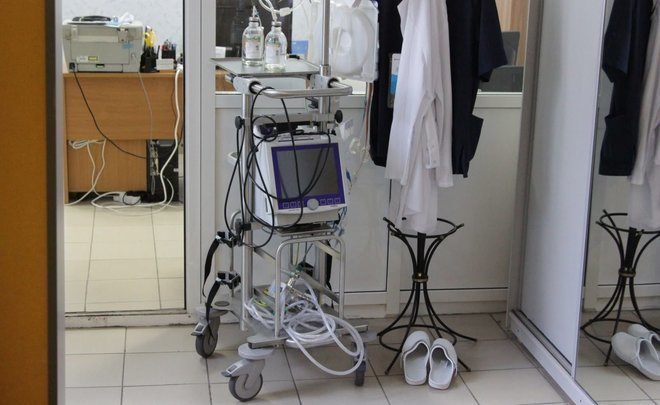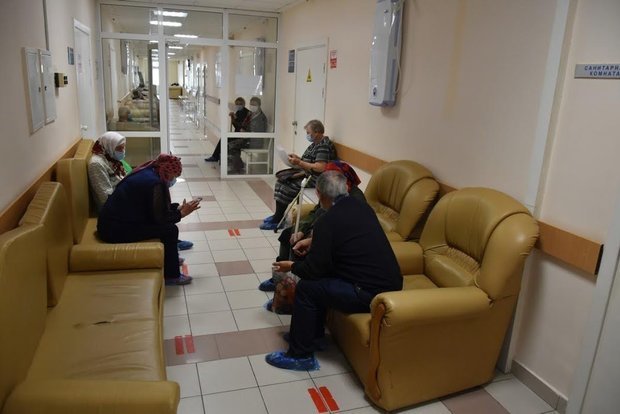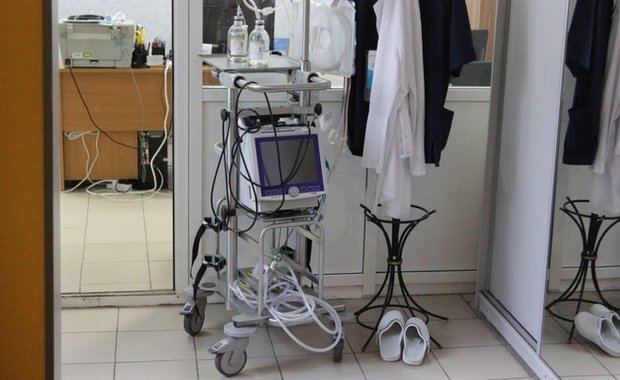Not Covid-19 only: what awaits Russian healthcare system in 2021
New state programme on polyclinics, coronavirus vaccins, strengthening of palliative care and other prospects for Russian healthcare in 2021

The national health care system suffered a painful blow last year. It had to concentrate on containing the pandemic. But as time goes on, doctors are learning to cope with Covid-19 — so it's time to return to other problems of the medical system. A brief spoiler: there will be more palliative care, fewer examinations of pregnant women, clinics and paramedical and midwifery stations will be modernised, and more — read the author's column of Boris Mendelevich for Realnoe Vremya.
Modernisation of primary health care
Much emphasis in 2021 will be placed on the launch of the new federal programme for the modernisation of primary health care. It will last for 5 years.
In total, it is planned to allocate 500 billion rubles from the federal budget under this programme. Another 50 billion rubles will come from regional budgets (including 13,5 billion rubles from the region). It is planned to allocate 90 billion rubles for the programme from 2021 to 2023. More than 3000 medical organisations have already joined the programme.
Let me explain what applies to primary health care. First of all, these are our polyclinics, where the patient comes at the first symptoms of the disease. Another important part of the primary care system is paramedical and midwifery stations in rural areas. In Tatarstan, there are very few hard-to-reach settlements in which the paramedical and midwifery station is the only place for hundreds of kilometres around where one can get medical care. But there are many more such places in Russia. Therefore, it is very important to include these institutions in the modernisation programme.

The programme includes major repairs of polyclinics and paramedical and midwifery stations, the purchase of equipment for them, and the purchase of vehicles for the transportation of patients. Here are just a few figures announced by Minister of Healthcare Mikhail Murashko at the discussion of this major federal programme:
- it is planned to purchase 19080 vehicles;
- 88006 units of medical equipment;
- to overhaul 10784 objects.
It is very important that it is at the primary stage that each patient receives help. After all, the earlier you start treating the disease, the more likely you are to recover soon.
I believe that in polyclinics there should be general practitioners (therapists, pediatricians), and narrow specialists (cardiologists, endocrinologists, etc.), and equipment for detecting pathologies. I believe that only together it will give a result in the form of increasing the availability of medical care, which means preserving the health and lives of millions of people.
Changes in state guarantee programme
In 2021, changes in the programme of state guarantees await us. Per Capita funding standards will be increased: for 2021 — by 3,7%, for 2022 and 2023 — by 4%.
In the MHI programme, all medical care will be divided into two groups: specialised, including high-tech medical care, which is provided by federal medical centres, and all the rest (but this does not mean that it will not include HTMC (High Tech Medical Care ) and specialised care).
A very important focus here will be the further development and increasing the availability of palliative care. Its volume will increase under outpatient treatment, including home-based patronage. In palliative departments of hospitals, the amount allocated for a bed-day will increase.
The list of types of high-tech medical care that is included in the basic MHI programme is being updated: two methods of surgical treatment of benign neoplasms are included in the otorhinolaryngological profile. Changes in the treatment of children with severe forms of diabetes are expected.
New rules for issuing medical certificates, conclusions and registration of disability
Since the new year, there are new rules for issuing medical certificates and conclusions. They will be valid until 2027. The innovations apply to cases where there are no special rules for issuing these documents.
Now it is allowed to make such certificates and conclusions in any form, and they can be drawn up both on paper and in the form of an electronic document (accompanied by an electronic signature of the doctor).
But, perhaps, one of the most discussed issues is the new rules for registration of disability. Going to the authorities for many turned out to be going through torments. But, perhaps, the registration of disability is one of the few issues in which the coronavirus pandemic has helped the Russians.
Let me remind you that in 2020 it was decided to extend the disability of patients without personal presence, automatically. And even the initial assignment of disability in the “coronavirus” spring and summer could also occur remotely — on the basis of documents sent to the medical and social assessment bureau by the polyclinic. That is, it turned out that a full-fledged document flow between instances is still possible. As a result, they decided to fix some “coronavirus” innovations in the rules. For example, earlier, if an incomplete volume of medical examinations was indicated in the referral, patients had to repeatedly contact the polyclinic for additional information. Now one doesn't have to do that.
Specialists of the bureau of medical and social expertise will independently return the referral to the polyclinic, indicate what is missing — the patient will not have to run in circles between the institutions.
Obstetric and gynecological care
In the new year, new rules for providing obstetric and gynecological medical care have come into force. The main point is a certain reduction in the number of mandatory examinations of a woman with a healthy pregnancy.
- If previously a woman had to see a gynecologist at least 7 times during pregnancy, now she can see the doctor only 5 times.
- Now it is enough to have one mandatory examination by a dentist, not two, as before.
- The examination by an otorhinolaryngologist has been excluded from the mandatory list — now it will need to be seen only if there are indications.
- In the new rules, there is a requirement that the therapist must first examine a pregnant woman no later than 10 days after the initial appeal to the women's consultation.
- The ophthalmologist's examination is slightly shifted and must now take place no later than 14 days after the initial consultation. So far, this deadline has been up to 10 days.
- The number of screening ultrasounds has been reduced. Instead of 3 studies, 2 are required: for periods of 11-14 weeks and 19-21 weeks. For each ultrasound, the form of the protocol is defined.
- Under the new rules, an obstetrician-gynecologist should make a final conclusion about the possibility of pregnancy, given the condition of the woman and of the fetus before 20 weeks (up from 22 weeks).

As we can see, the changes are quite serious. In general, they are aimed at transforming the healthcare sector and increasing the availability of medical care. It should be understood that the final result depends not so much on the correctly executed documents, but on the sufficiency and qualification of personnel, the updatability of medical equipment, the availability of medical care and an effective dialogue between the medical worker and the patient. After all, only the patient's conscious attitude to treatment becomes the key to recovery.